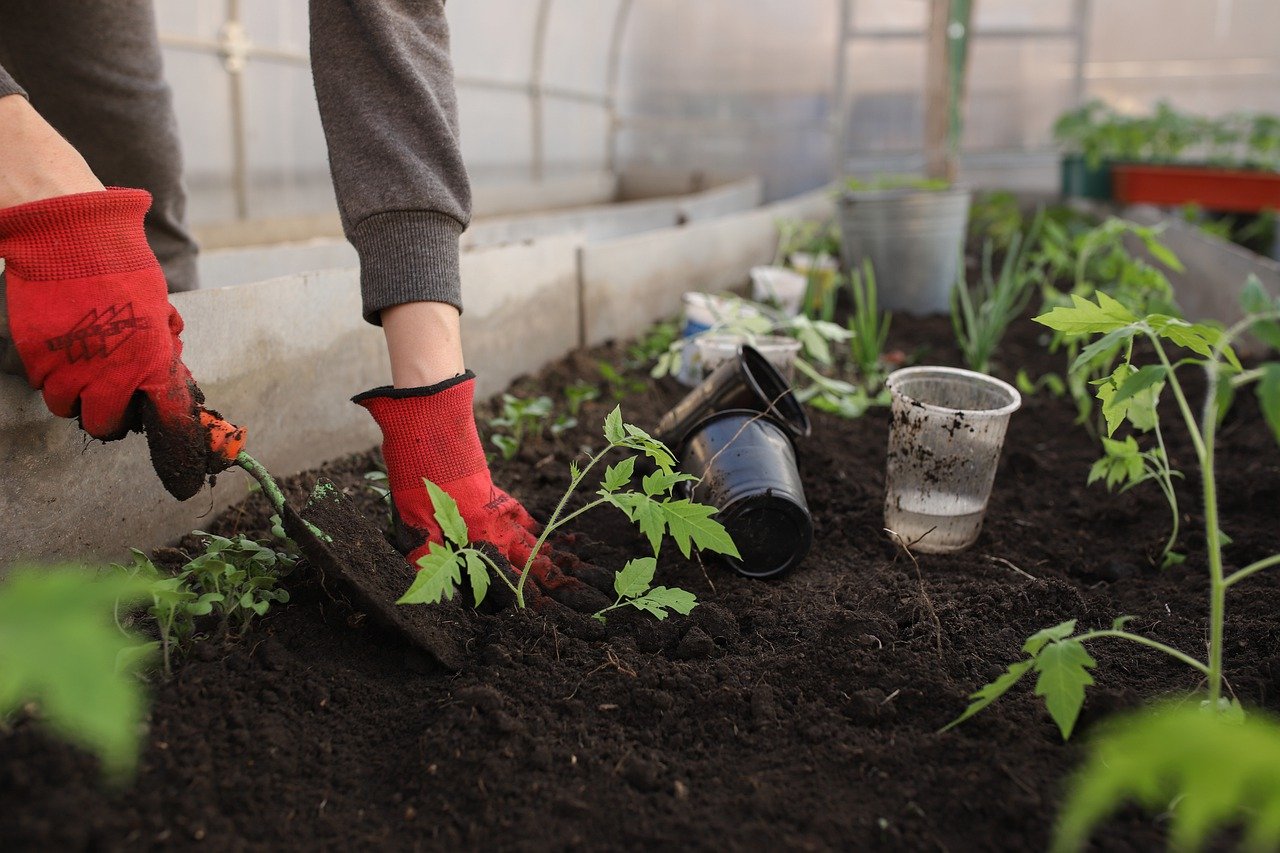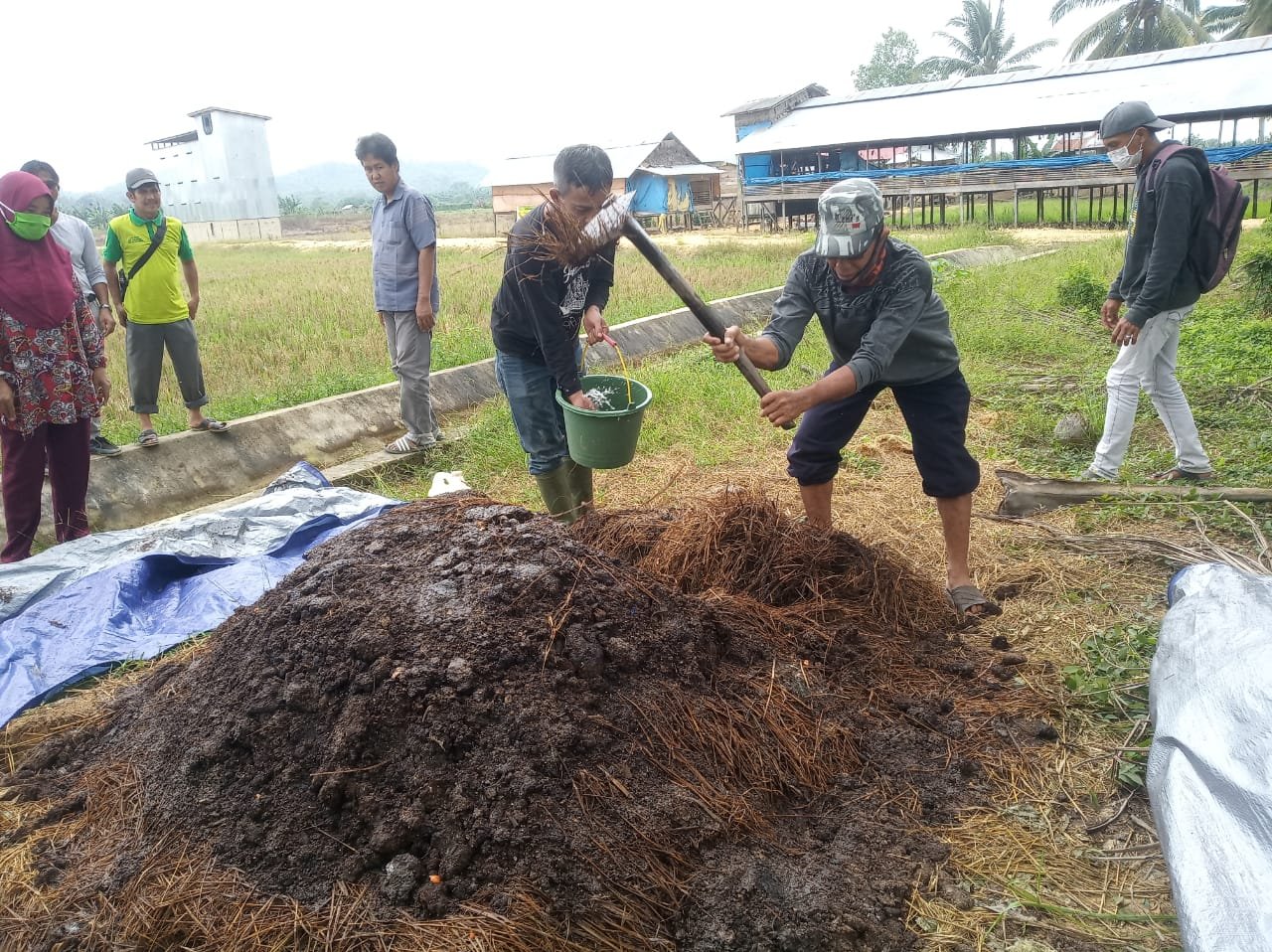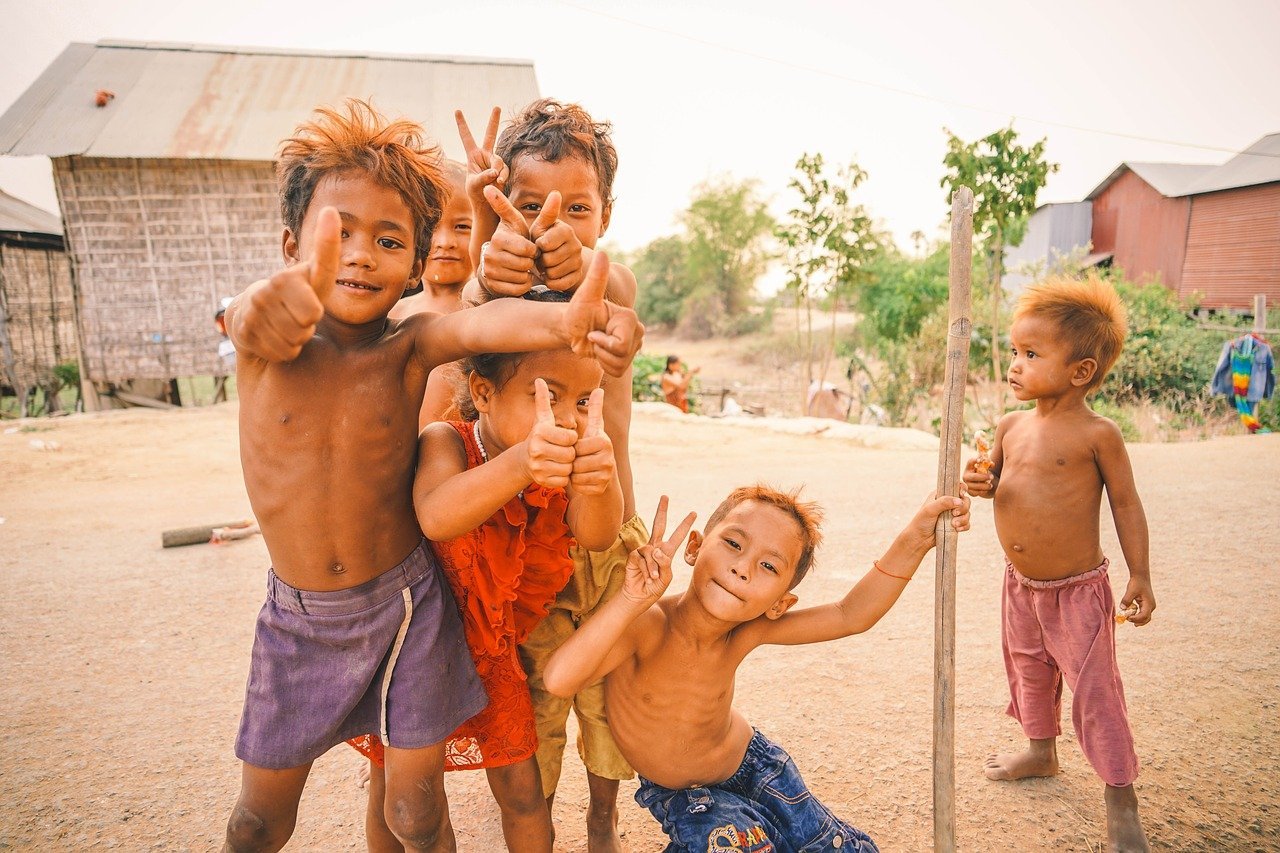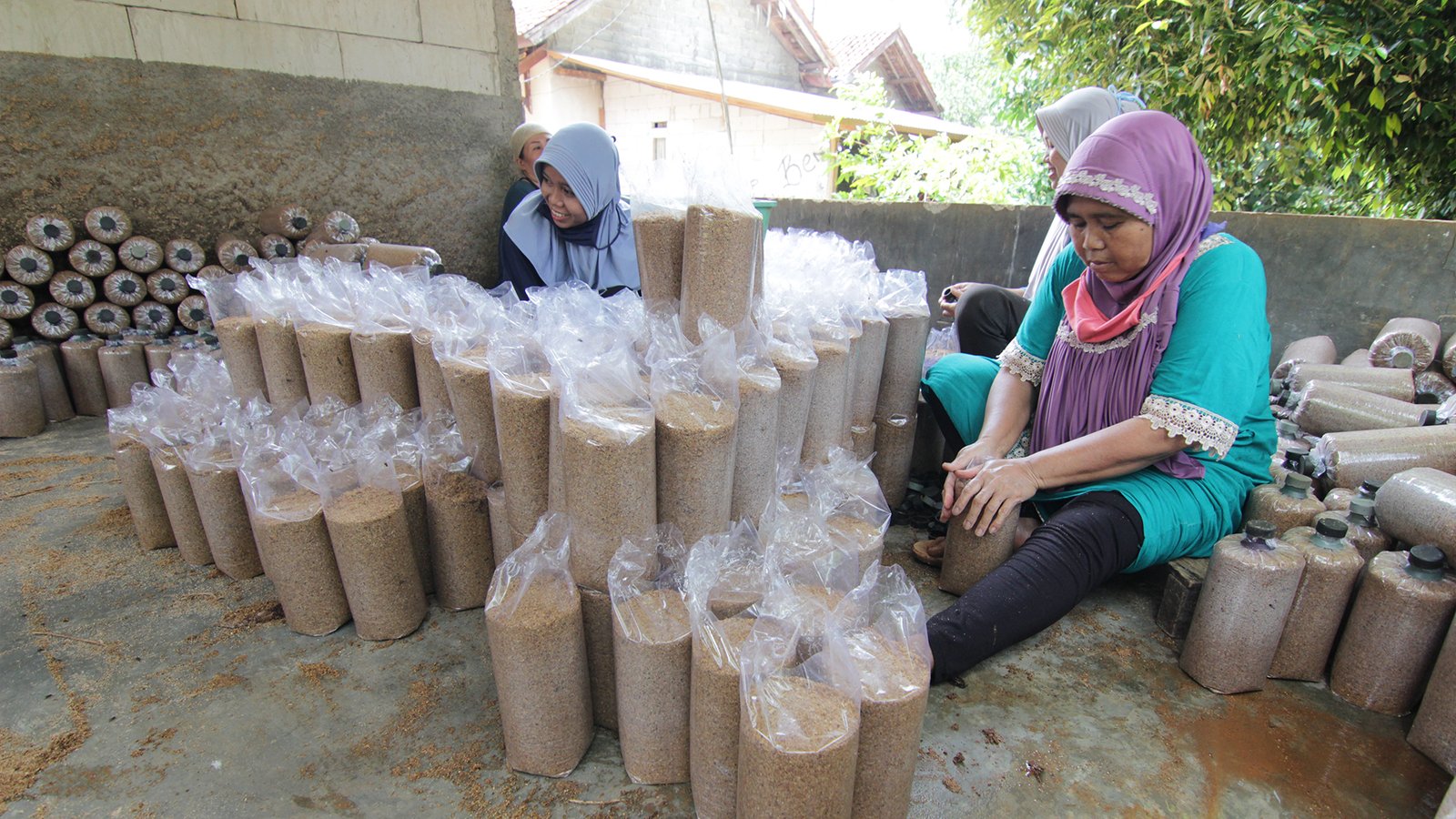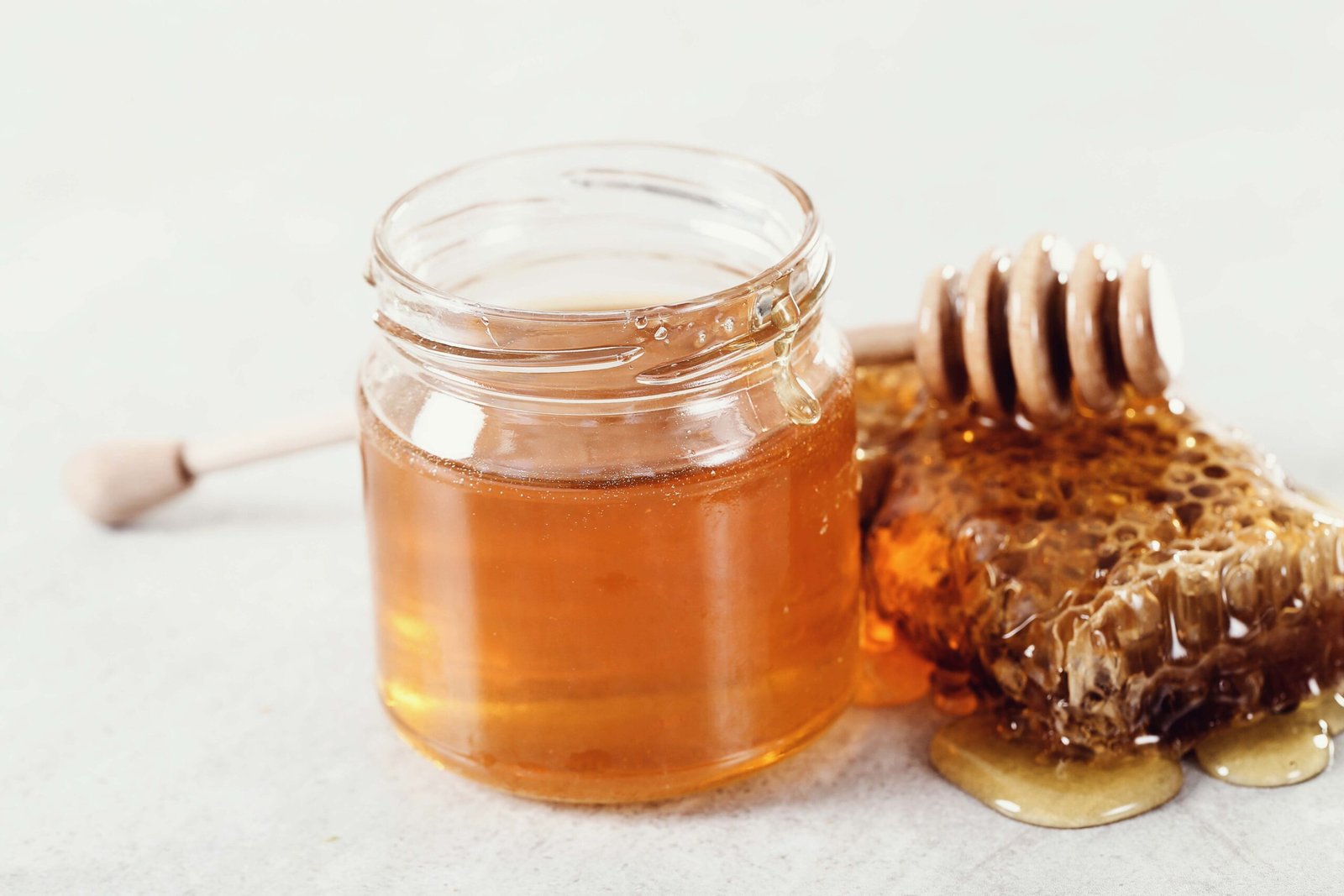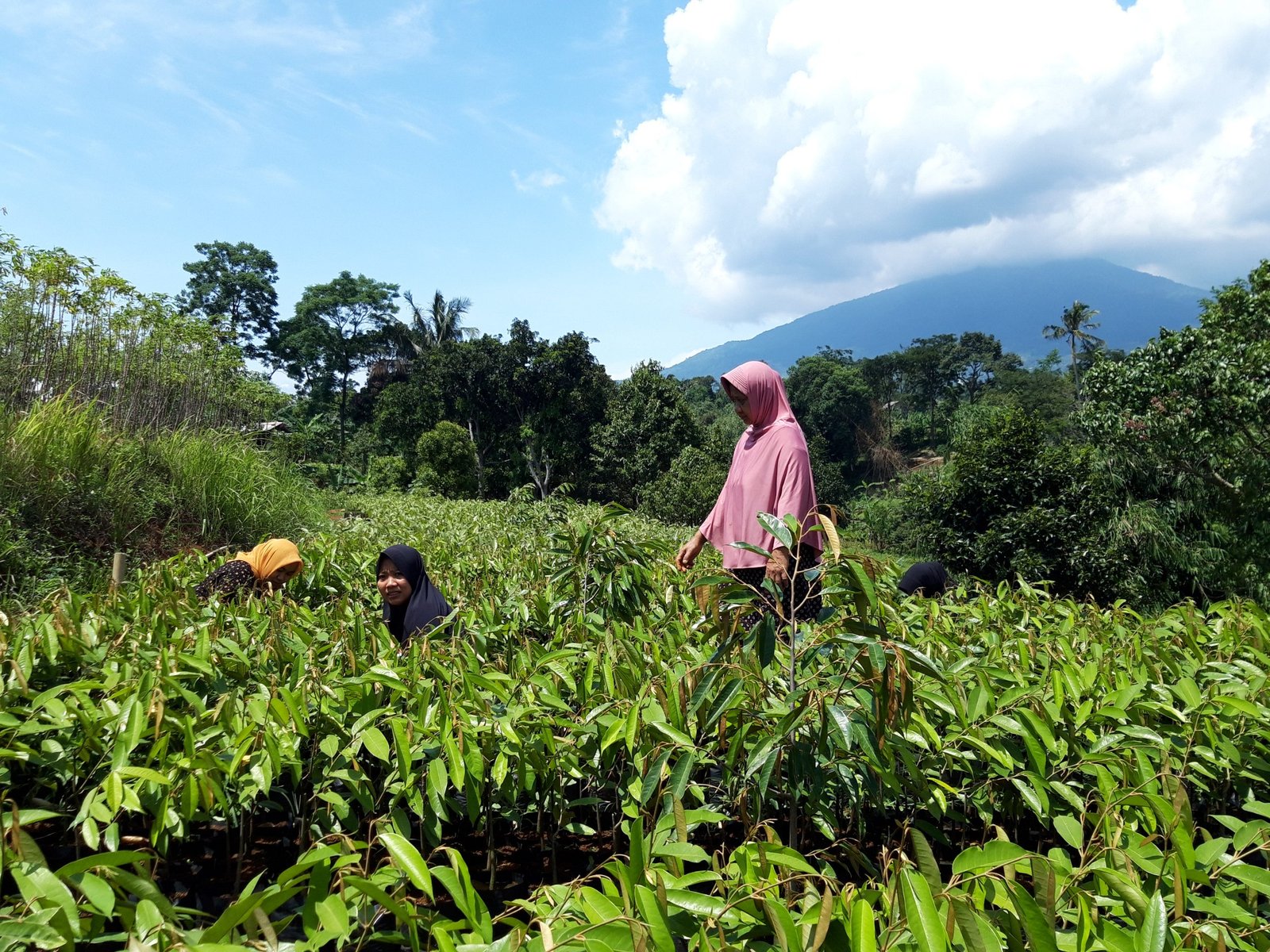JonggolPINTAR (Program Inklusif Inisiatif Terpadu) in Sukadamai Village, Bogor Regency, West Java, is one of the community empowerment programs initiated by Bina Swadaya Konsultan (BSK). This program allows anyone to contribute according to their capacity in an inclusive manner. JonggolPINTAR, through the Jonggol Semar Mushroom group, is increasing its capacity by continuing to learn to grow and be more empowered and useful for the surrounding community.
Semar Jonggol Mushroom is a non-governmental group assisted by BSK that strives for oyster mushroom cultivation. This group seeks to raise the economic status of the people of Sukadamai Village through oyster mushroom commodities. Currently, they manage three beetles, with the production of each beetle (mushroom house) capable of producing 10 thousand to 13 thousand baglogs of mushrooms. The show did not make the Semar Jonggol Mushroom group complacent. They continued to learn to improve their abilities.
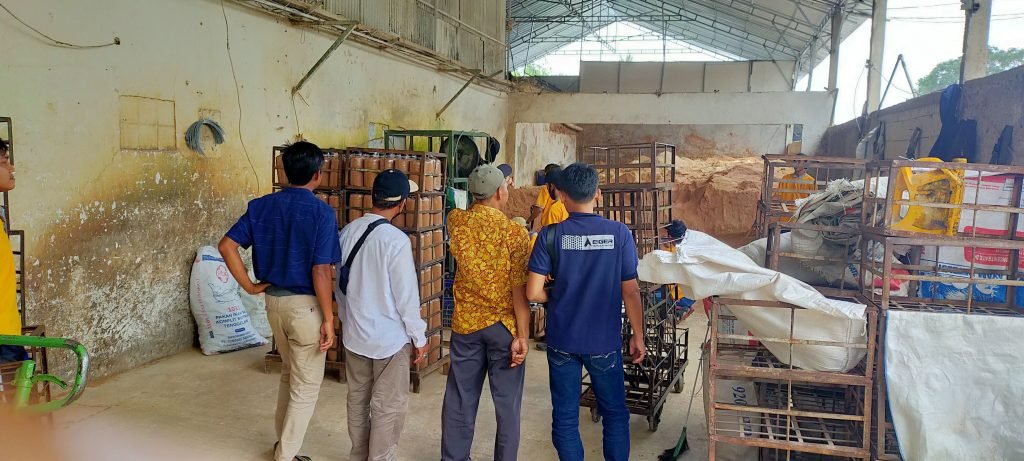
Through grants and assistance from BSK, the Semar Jonggol Mushroom group conducted a comparative study on business management and training on processed oyster mushrooms at CV Asa Agro Corporation, Cianjur. This company is a supplier partner of mushroom seeds and a consultant for farmers in Jonggol, which has been established for over 20 years. This competent company in oyster mushroom commodities employs more than 150 employees.
Present in the comparative study from Semar Mushroom were Asep Mardi (Coach), Iim (Secretary), Edi (Chairman), Yuli (Processed Section), and Yuyun (Women Coordinator).
In his speech, Asep Bahtiar, factory head of CV Asa Agro Corporation, emphasised the importance of good management and undergoing a change process so that the business continues to run and grow while appreciating the transformation of the Semar Jonggol Mushroom group.
“As a corporation, CV Asa Agro also started as a small group business, with good management and processes until finally, it reached the size it is today. I appreciate the changes made by my farmer friends in Jonggol. Many farmers did not survive because they were less diligent in administration. Although troublesome, administration is key. At first, we had difficulty implementing the habit of recording what was done and doing what was recorded,” said Asep Bahtiar.
Asep Mardi also gave a special note on how the group in the village has two sides. First, it can be the right container for farmers. Second, it can cause divisions among farmers due to poorly targeted assistance.
Participants of the comparative study were invited to tour the factory to see the process of making mushroom baglogs with a production capacity of around 7,200 baglogs per day, with a selling price of Rp2,400 per baglog. In addition, participants had the opportunity to review the part of making media for seedlings.
Ahmad, a team from CV Asa Agro Corporation who accompanied the participants, explained that the rolling system only allows workers in dirty units to move to locations that must be sterile. This is to maintain the quality of oyster mushroom production, which must be clean from pests and diseases.
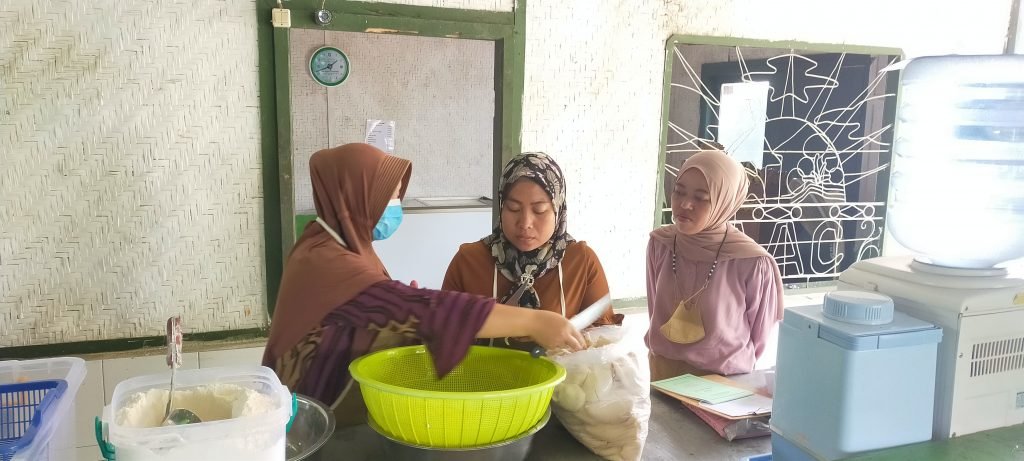
Ahmad explained that there are three layers of safety from pest disorders in the sterilisation and incubation section. First, with gauze for large insects. Second, paralon smeared with glue on the front of the shelf. Third, plastic smeared with cement in the centre of the frame. The glue used was specially made by CV Asa Agro Corporation itself.
The Semar Jamur Group used this comparative study to ask and learn about oyster mushrooms in terms of cultivation and processing. The process of cultivating oyster mushrooms is developing, as observed by Edi, whose daily life in the Jonggol Semar Mushroom group makes baglogs.
“There are still many technical differences and developments that we have not updated in oyster mushroom cultivation,” said Edi after receiving an explanation about the technical sterilisation of baglogs, incubation, placement of beetle racks, roofing materials, and others from the CV Asa Agro Corporation team.
Meanwhile, Yuli and Yuyun had the opportunity to study the variations of processed oyster mushrooms and make them durable so that the sales period was longer than usual.
“This training is very important because, before the training, we did not know how to make this mushroom preparation more varied and tasty. This training is indeed focused on processed crispy mushrooms so that they are durable (durable), and the key is not too difficult, just diligently and painstakingly, “said Yuyun.
At the end of the meeting, Iim got new inspiration, especially for group activities after training.
“In addition to getting confirmation and registration from the Agency, the group can also start trials of processed production and improve coordination with the government. As said by Mr Asep Bahtiar, always update information, especially for developing MSMEs. We want to thank BSK and CV Asa Agro for this opportunity,” concluded Iim.

